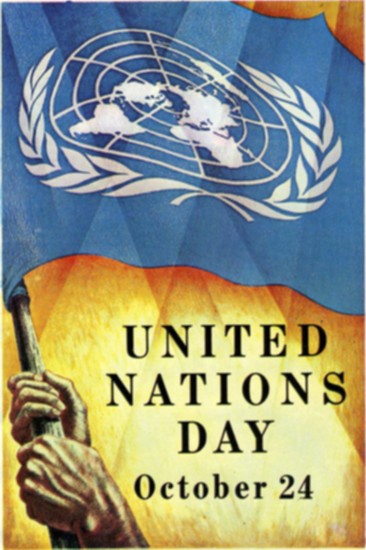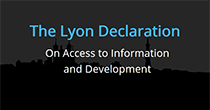October 24th marks United Nations Day, the anniversary of the entry into force of the United Nations Charter in 1945. The United Nations uses this day as an opportunity to not only celebrate the collaborative efforts of member nations, but also to reaffirm pressing endeavors of the organization and to lay out goals for the year to come. In his UN Day message for 2014, United Nations Secretary General Ban Ki-Moon stated, “At this critical moment, let us reaffirm our commitment to empowering the marginalized and vulnerable. On United Nations Day, I call on Governments and individuals to work in common cause for the common good.”
One such common effort of United Nations member states will be the Post-2015 Development Agenda, a plan currently under construction to succeed the Millennium Development Goals as a framework for global development that will stretch to 2030. While the push to achieve the MDGs continues through the plan’s target date of December 2015, United Nations organs and agencies will immediately undertake the new development agenda after 2015. As described in a previous post on Global Currents, the process of developing a post-2015 agenda for development has been underway since 2010, when the UN System Task Team on the Post-2015 UN Development Agenda was created, as well as a High-level Panel of Eminent Persons to advise on the post-2015 developmental framework.
In early October, the High-Level Panel released an interactive online report on the agenda, entitled “A New Global Partnership: Eradicate Poverty and Transform Economies Through Sustainable Development.” Through their research, which involved consultations on the individual, company, and national level through The World We Want, the panel developed 12 Illustrative Goals for global development based on Five Transformative Shifts. These goals build on the Millenium Development Goals and extend and transform them to satisfy the opinions of the public and the shifting needs of the world. The Five Transformative Shifts are as follows:
- Leave no one behind.
- Put sustainable development at the core.
- Transform economies for jobs and inclusive growth.
- Build peace and effective, open and accountable institutions for all.
- Forge a new global partnership.
While the transformative shifts represent ambiguous, widely arching objectives, the 12 illustrative goals delineate just how the transformative shifts can be implemented in more specific, measurable terms. The Panel believes that if the 12 Illustrative Goals are reached, then these shifts will be accomplished. The UN hopes to use the momentum that was started by the Millennium Development Goals to keep member states and UN agencies moving towards worldwide improvement in areas such as poverty, hunger, water, sanitation, education and healthcare.
Consult the sources below for more information on Global Development and the United Nations’ Development Agenda:
Websites
Report on Post-2015 Agenda by High-level Panel of Imminent Persons
U.S. Agency for International Development
Scholarly Articles (Available through UIUC Online Journals and Databases)
Brolan, C. E., Lee, S., Kim, D., & Hill, P. S. (2014). Back to the future: what would the post-2015 global development goals look like if we replicated methods used to construct the millennium development goals?. Globalization & Health, 10(1), 1-15.
Cook, Sarah, Dugarova, Esuna (2014). Rethinking Social Development for a Post-2015 World. Development, 57(1), 30–35.
Slack, L. (2014). The post-2015 Global Agenda – a role for local government. Commonwealth Journal Of Local Governance, (15), 173-177.
Books
Black, Robert E.,, Singhal, Atul,Uauy, Ricardo. (Eds.) (2014). International nutrition :achieving millennium goals and beyond. Basel, Switzerland : Karger ; Vevey, Switzerland : Nestlé Nutrition Institut.
Dodds, Felix., Laguna Celis, Jorge.Thompson, Elizabeth. (2014). From Rio+20 to a new development agenda: building a bridge to a sustainable future. London ; New York : Routledge.
Haslam, Paul Alexander,, Schafer, Jessica,, Beaudet, Pierre,Haslam, Paul Alexander. (Eds.) (2012). Introduction to international development :approaches, actors, and issues. Don Mills, Ontario, Canada : Oxford University Press.


